Has India’s first family finally lost its grip on power?
With exit polls pointing to a crushing third defeat in a row for the Congress party and its opposition alliance, where does that leave the Gandhi-Nehru family? Namita Singh travels to some of the last bastions of Congress support in northern India, where cracks are appearing


A ripple of excitement spreads through the crowd waiting outside in the 40C midday heat in this corner of Uttar Pradesh, northern India – an island in a sea of constituencies supporting Narendra Modi’s BJP.
“Rahul-ji’s helicopter has come!”, announces an audience member, not long before campaign songs start to blare from speakers and Rahul Gandhi, India’s second-most recognisable politician, steps onto the stage.
This was the scene just a couple of weeks ago in one of the last bastions of fervent support for the Gandhi-Nehru family, one of the world’s great political dynasties whose members include three Indian prime ministers. Among them is Rahul Gandhi’s great-grandfather, the first and longest-serving leader of independent India, Jawaharlal Nehru.
Yet India has changed dramatically since the time when Nehru led the Congress party, with Saturday’s exit polls indicating that Mr Modi’s Hindu nationalist alliance will take more than 350 parliamentary seats when the full results of the country’s general election are announced on Tuesday.
Congress and its allies are forecast to win barely a third of that number, making it a third election in a row where India’s grand old party has desperately underperformed. They say the BJP’s widespread abuse of government investigative agencies to harass opposition leaders and parties, including a total freeze on Congress’s bank accounts, mean this election has been neither free nor fair.
But it is also significant that cracks were already starting to show even in Rae Bareli and Amethi, two neighbouring constituencies in Uttar Pradesh that were once the safest of seats for Congress, when The Independent visited last month. For years the Rae Bareli seat was represented by Sonia Gandhi, former Congress president and wife of the assassinated former prime minister Rajiv Gandhi. She has stepped aside for a seat in India’s upper house of parliament, leaving her son Rahul to take over the constituency, and poor exit poll numbers aside, he is still expected to win here.
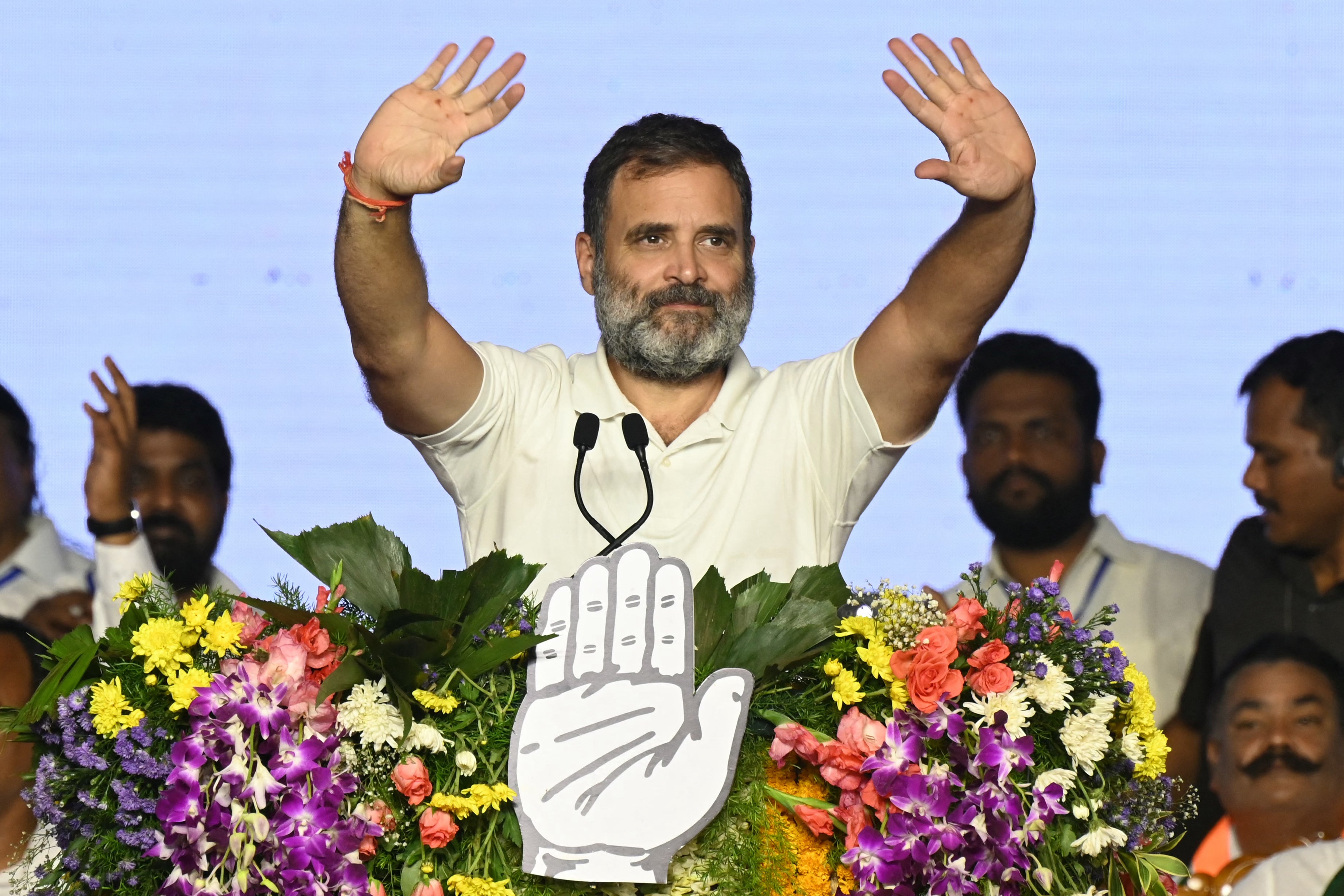
While support for the Gandhis still seemed strong in Rae Bareli, voters in Amethi told The Independent they were questioning what Congress has to offer them given its weakened status across the country, and whether five years with a Congress MP would really make for positive change in a relatively rural and impoverished region. It gets to the heart of a question that will be picked over in the weeks to come – did Congress run an effective and positive campaign, or focus too much energy on trying to paint Modi as India’s bogeyman? And what does yet another election loss say about the future of a family that has ruled India for more than half of the last 77 years?
When Mr Gandhi does take to the stage, he is quick to go on the attack. “This election is the strangest one in the history of independent India,” he begins. “Because the BJP and [its ideological parent organisation] RSS are fighting the elections to obliterate the constitution. Their leaders have clearly said they will change the constitution of India once voted to power.”
Mr Gandhi is referencing concerns that Mr Modi, emboldened in a third term, will try to remove references from the constitution to India being a secular nation, and instead declare it a country for Hindus. Mr Modi has said he has no plans to do this, but it’s a talking point for many die-hard BJP supporters and such fears have hardly been assuaged by an aggressive election campaign full of anti-Muslim rhetoric.
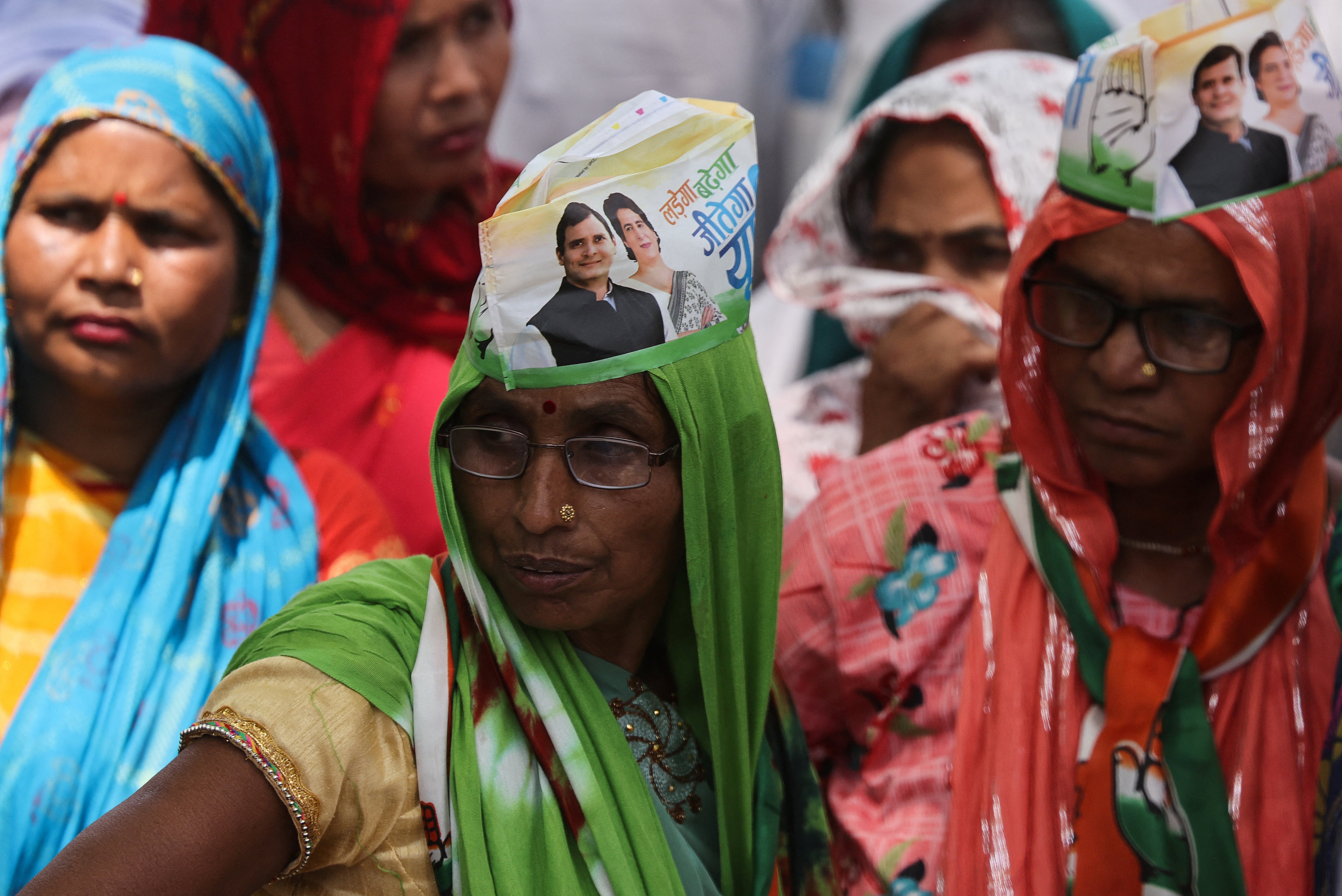
The Independent spoke with Mr Gandhi’s sister, Priyanka Gandhi-Vadra, who is herself a top party strategist and star campaigner. Asked what Congress had to offer voters at this election, she said: “Our pitch is very simple. Mr Modi’s policies have been extremely, they’ve actually been harmful for the poor of this country, for the farmers, for labourers [and] even for the middle class. Frankly, he has not done anything to strengthen them.
“We are saying that his policies have all been skewed towards three or four of his oligarch friends to whom he seems to be handing everything, even the nation’s assets,” she says, an apparent reference to Mr Modi’s close ties with billionaire industrialists like Mukesh Ambani and Gautam Adani, the country’s two richest men.
“And we are saying that we want to put in place a government that is focused on solving your problems and focused on strengthening you so that you can face all these problems that have multiplied under Modi’s rule.”
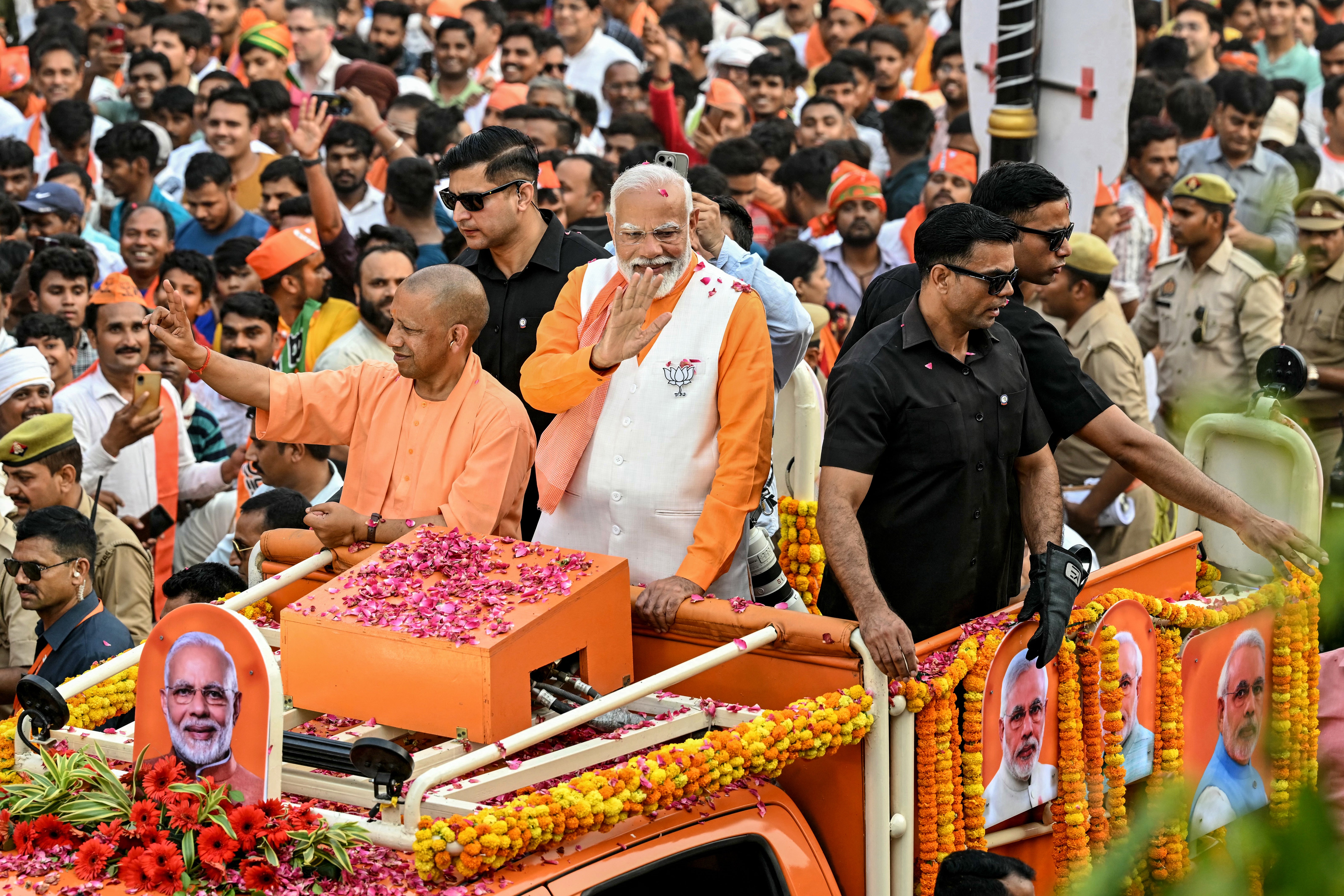
While most would agree that this election has been far from fair for Congress and its allies, the party is also facing criticism for an apparent inability to recover from the landslide losses of 2014 and 2019 and provide a viable alternative to Mr Modi. Sugata Srinivasaraju, journalist and author of a book on Rahul Gandhi, Strange Burdens, suggests the Gandhis have spent too much of the election preparing to defend their own roles in the party in the event that they lose.
“They are creating a ground already to say that the elections may not be so credible after all. That it is possible they are stolen. They are planting doubts with regard to the electoral processes,” he tells The Independent.
“My question is when you spent so much energy on a negative campaign, on berating Modi, you could have spent a part of that energy to positively approach your own party. What have you done concretely to reorganise your party?”
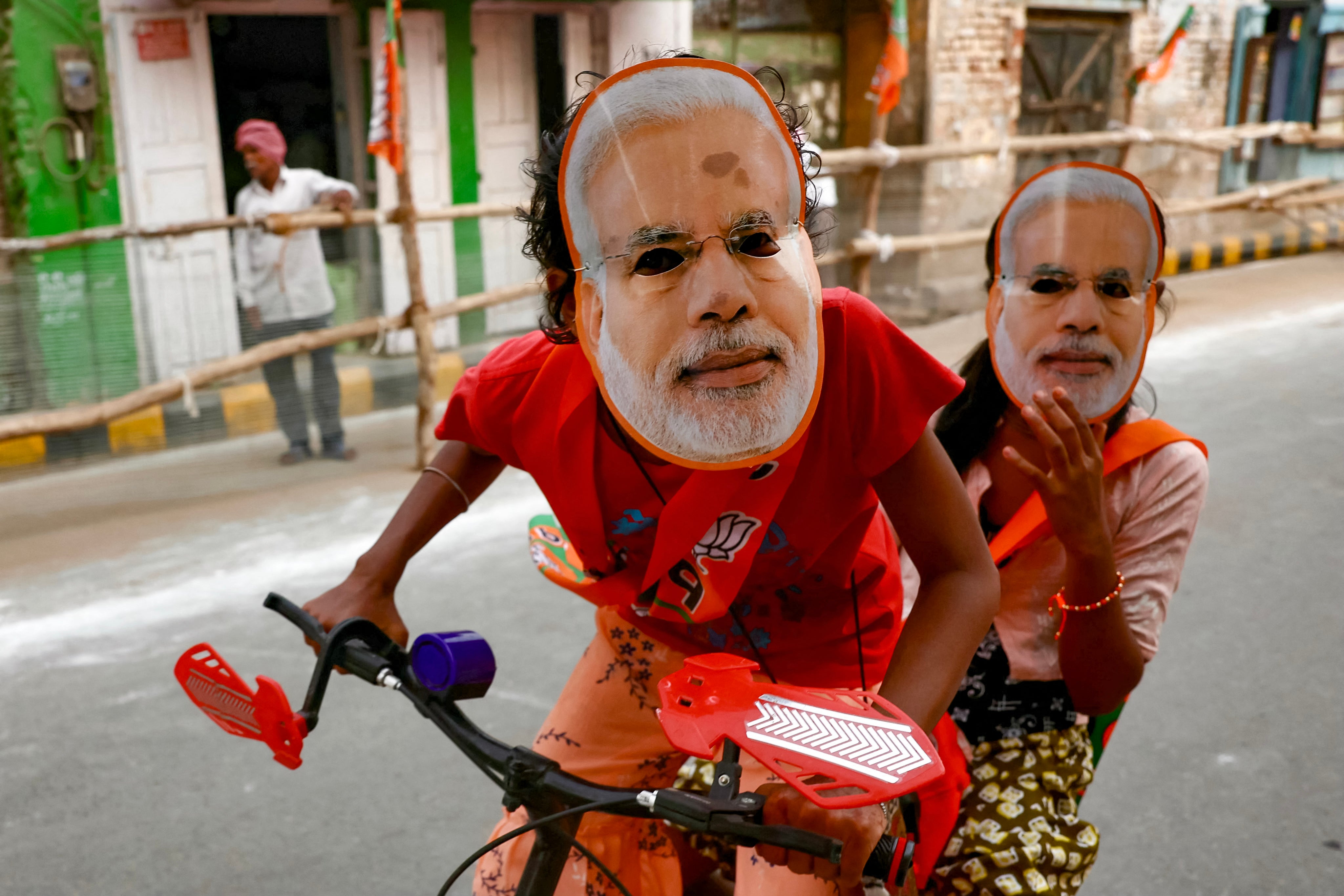
Facing relentless criticism from the government benches that Congress exists as a party only to further the ambitions of one family, in 2022 the party held an election to appoint a president from outside the party’s ranks. Among those running were Shashi Tharoor, a former high-ranking UN official and author popular with Indian liberals and young people. In the end the party chose Mallikarjun Kharge, a Gandhi loyalist who Mr Srinivasaraju describes as no more than a “rubber stamp” for the family.
“Why didn’t you, in the last 10 years, focus [on rebuilding the party] after your first loss in 2014?” he asks the Gandhis. “Why didn’t you spend that energy building the infrastructure and network for your party? You did not focus on that, you just placed it on one side. You thought you will come back by default again.”
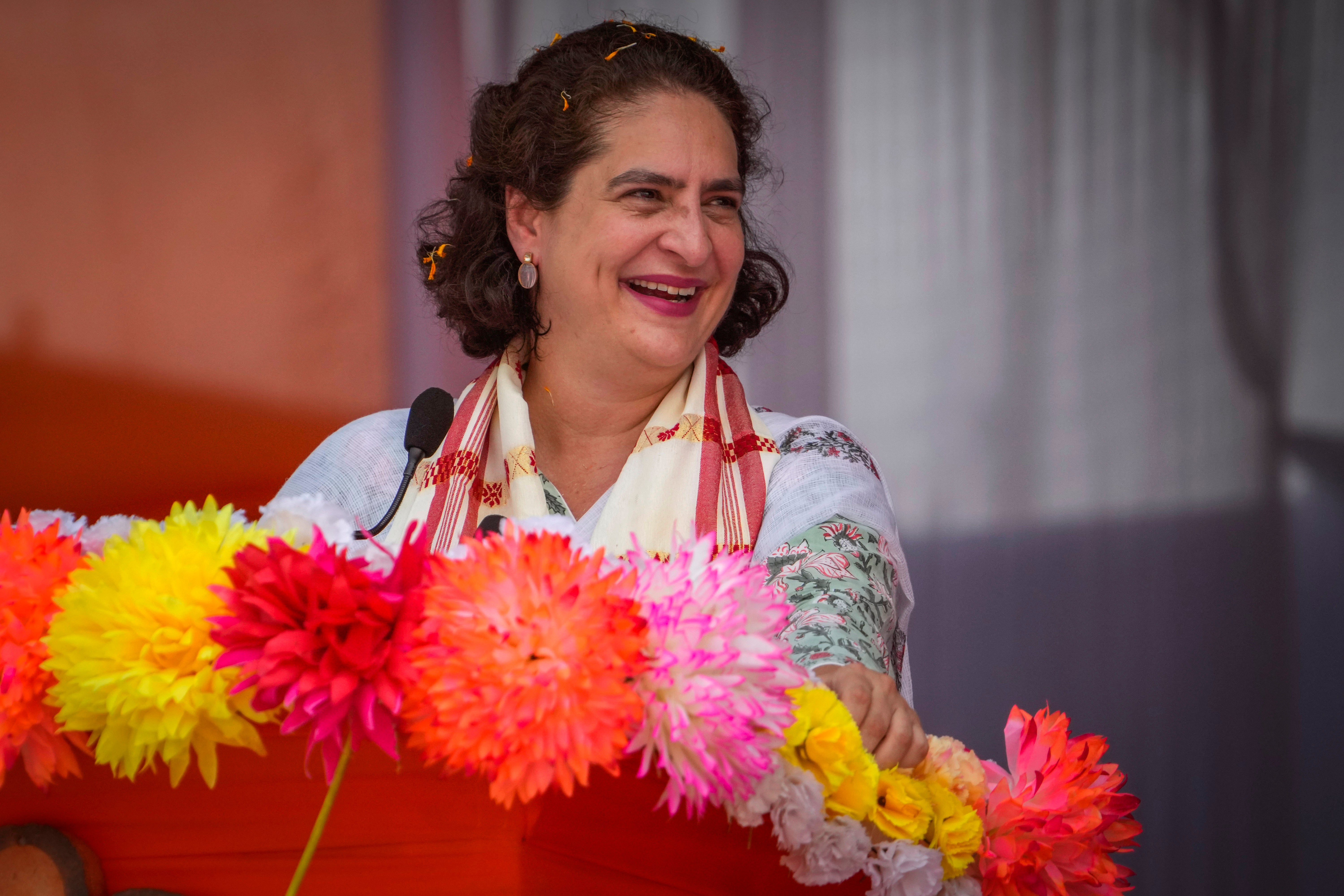
There are a host of reasons given by voters in Amethi for why they are turning their backs on the Gandhis, and these range from the local to the religious.
Several cite Mr Modi’s inauguration of a temple to Lord Ram in Ayodhya, also in Uttar Pradesh, as a moment of pride for them as Hindus. With the Ram Temple’s first phase hastily built in time for Mr Modi to declare it open just before the election, it was another moment of history in the country’s lurch towards Hindu nationalism, with the prime minister acting as high priest at a grand monument to Hinduism’s most important deity – on the site of an illegally demolished mosque.
Awadh Prasad Patel, who sings holy songs at religious gatherings, vows to vote for Mr Modi, saying members of his caste support the party. “Only Muslims and a few Dalits [formerly Untouchables] might vote for Congress,” he says. “I am a farmer and a follower of deity Lord Ram. And Modi put an end to the issue of Ram temple. So we would be voting for them.”
“For the longest time, there was no road here. Just potholes,” Chotey Lal Sahu, a 65-year-old from Berara, a village in the Amethi constituency, tells The Independent. “It was filled with water (during the rainy season). But now there is a road. Its construction has eased things for us,” he says.
“Under this government, we are getting ration, we are getting pension. This is the first time the country has a vegetarian prime minister, as well as a vegetarian chief minister,” he added, referring to the firebrand local BJP leader in the state, chief minister Yogi Adityanath.
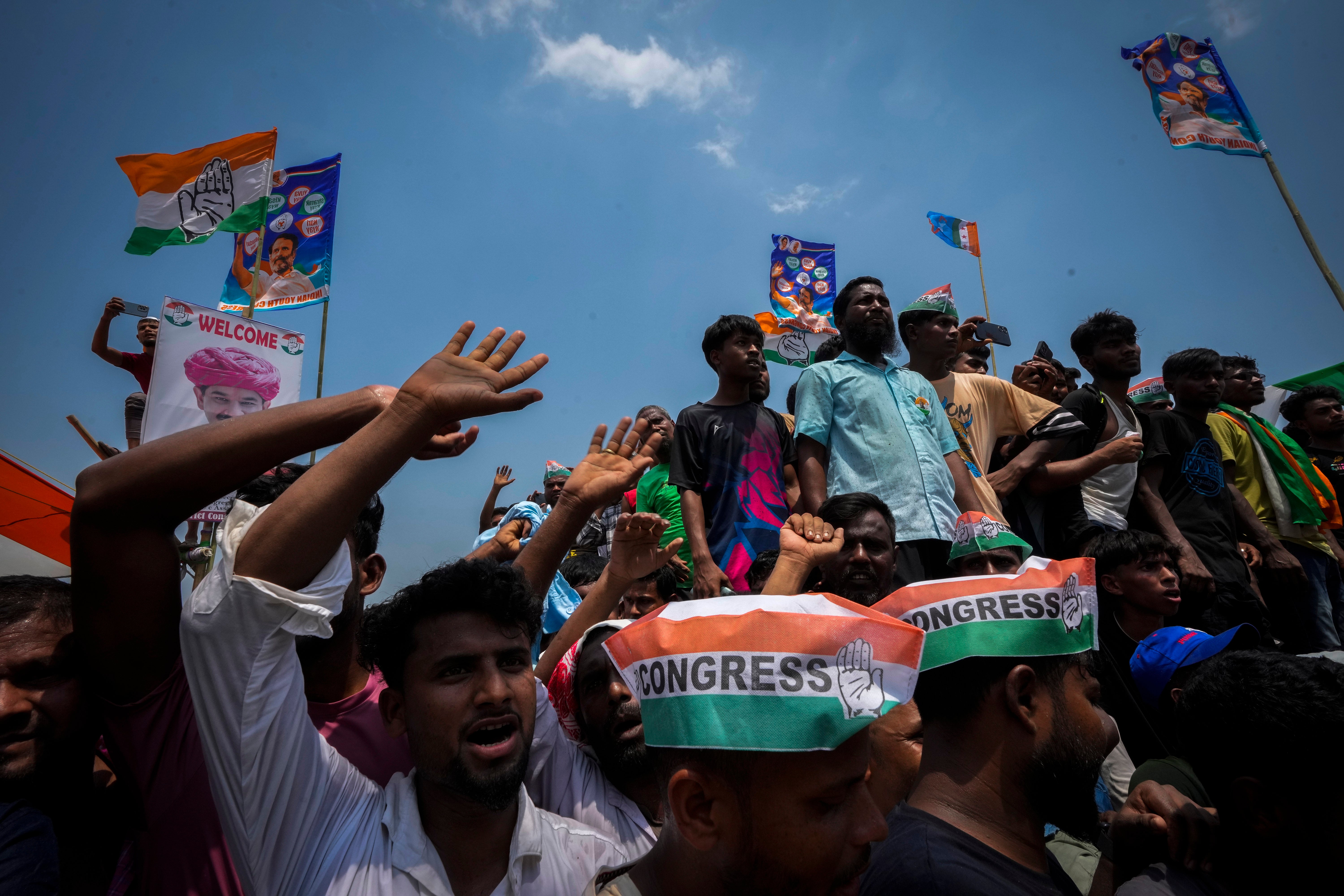
Ram Shankar, from Tiloi in Amethi, vociferously backs the BJP. “Rahul gave us a lot. But Thakurs [upper caste men] have taken everything. From land to grazing area to pond. There is nothing left.
“I raised a complaint about waste pipe leaking but the police came and beat me. They also beat my father,” he says. “I will vote for the BJP. At least they give money to farmers and have waived off some of my loans.
“I do not care what Rahul Gandhi or his family did, as I was not there. We will only vote for those who will fight for our rights. There is no road, it is just mud. People s*** on the roadside. And our head of village never visits us.”
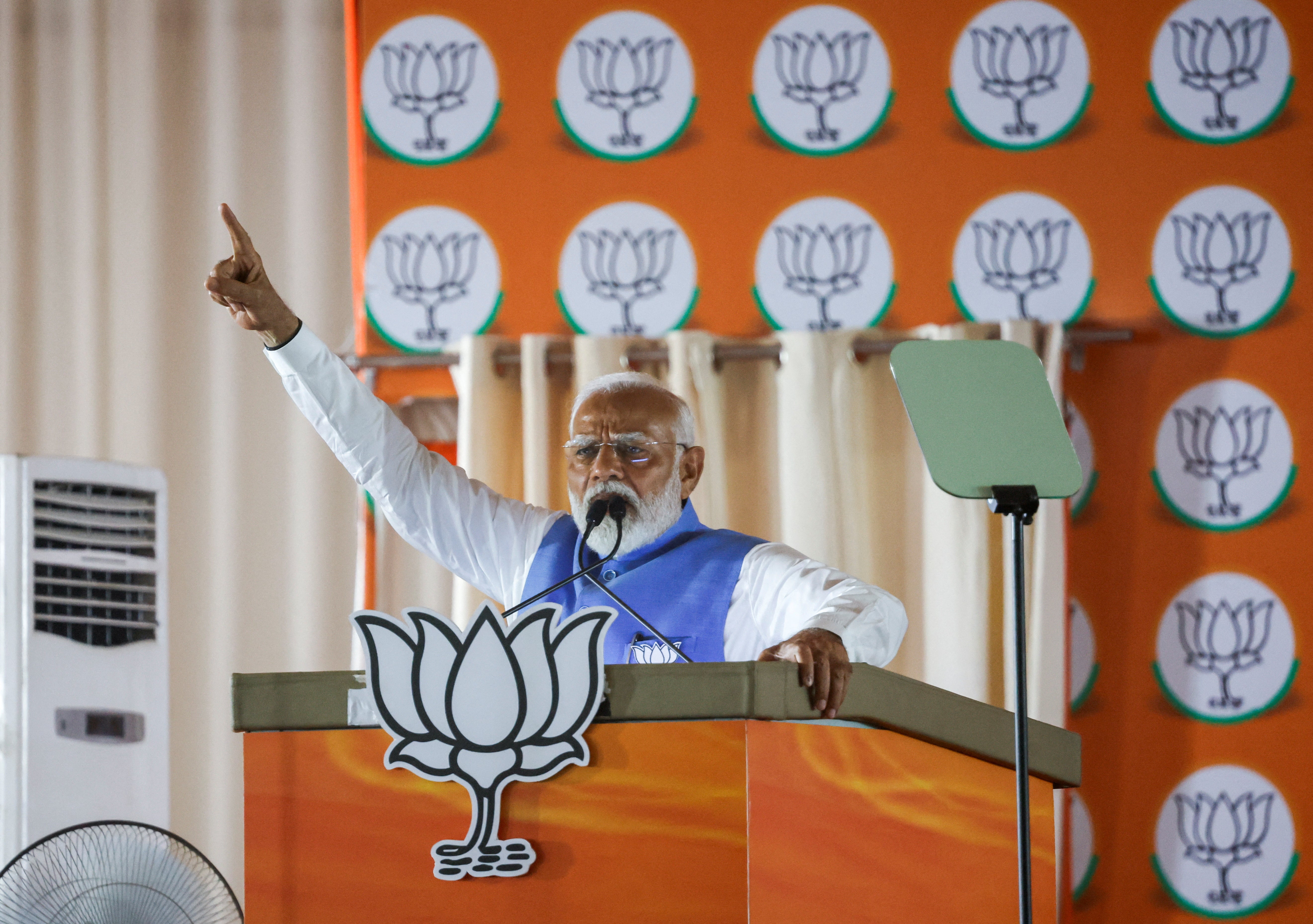
Issues relating to caste and religious politics are powerful tools to sway voters here in Uttar Pradesh, and Congress has been seen as largely reactive in its response to the way Hindutva [Hindu-first] policies have won waves of support for Mr Modi’s party. For a time Congress was accused of doing “soft Hindutva”, showing Gandhi touring Hindu temples as a way of saying the party could still appeal to the religious group that makes up around 80 per cent of the population.
But more recently the party has realised it will never win back the die-hard Hindu nationalists that make up the BJP’s base, Mr Srinivasaraju says, and it is instead “trying to present the Congress as a complete opposite to the philosophy of the BJP”.
“[Gandhi] started speaking about federalism and balkanised caste politics, which was in contrast to the centralised and pan-Indian imagination the Congress was known for not so long ago. He started saying that India was a union of states and not exactly a nation,” he says. “I think Rahul Gandhi is trying to occupy a kind of high moral ground because there is nothing else left.”
Many will question whether Congress picked the right strategies for this election if the results on Tuesday go in line with what the exit polls are saying. But whatever reckoning is due, it seems certain that the party’s first response will be to publicly question the fairness of the world’s largest election.
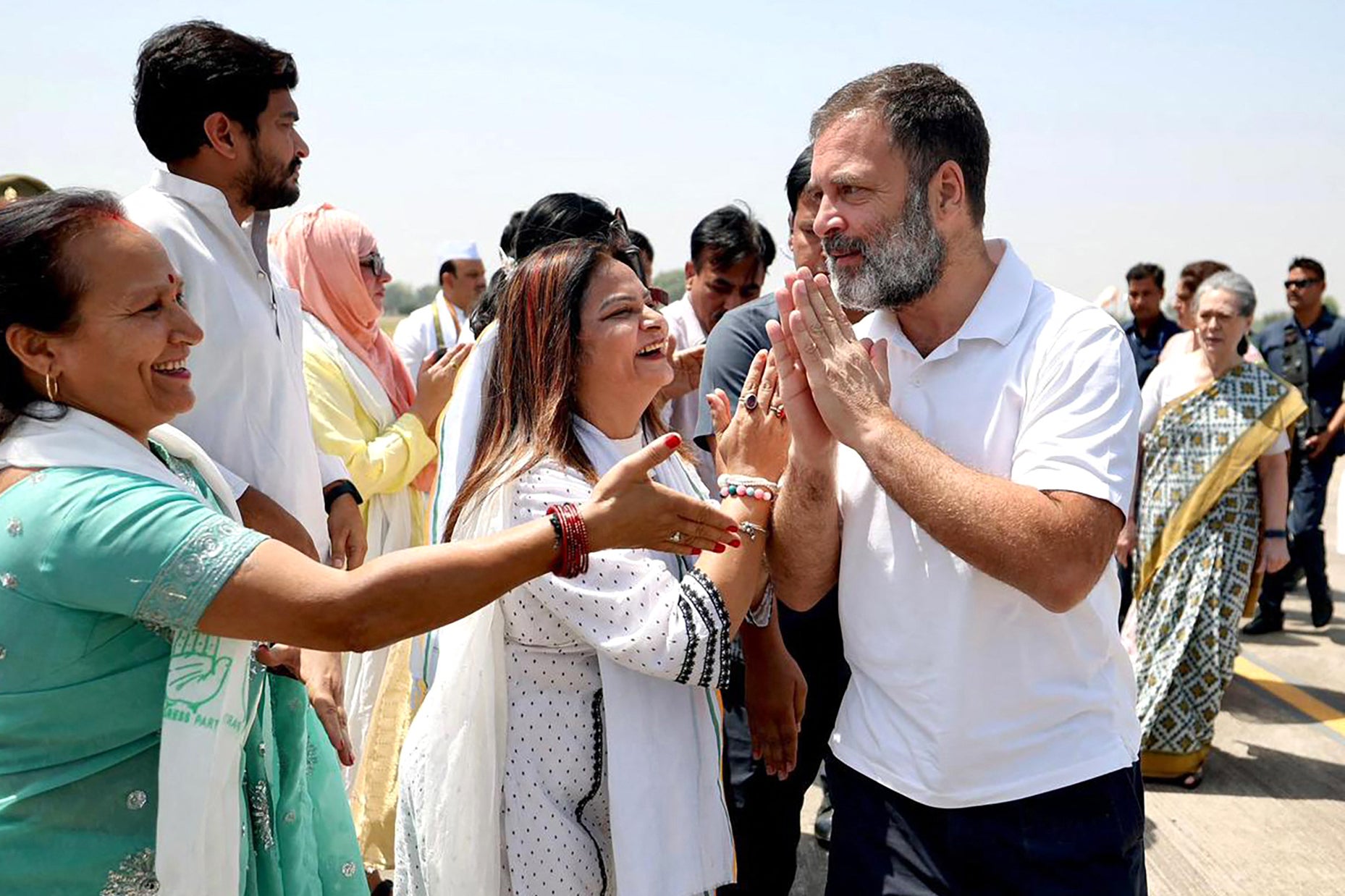
“It’s the first, possibly the first election in the history of India, where chief ministers from opposition parties have been imprisoned during election time,” says Ms Gandhi-Vadra, as she highlights the challenges faced by the opposition. “There has been a massive attack on opposition leaders in India. Not just opposition leaders, but on free and fair media. So there’s hardly any journalists now who will take an independent stand. The ones who did have either been imprisoned or cases have been put against them.
“On every front, whether it’s activists, journalists, political parties or movie stars who have raised their voices. On every front, the government has attacked them.” The harsh reality for the Gandhi family and its party is that it has had no real defence against the onslaught it has faced from the man now set to become the first after Nehru to win three terms as India’s prime minister.
Join our commenting forum
Join thought-provoking conversations, follow other Independent readers and see their replies
Comments
Bookmark popover
Removed from bookmarks